32 Heartbreaking Signs That Your Marriage Is Beyond Repair
There comes a moment in every struggling marriage when you have to confront the heartbreaking reality that things might not ever get better. It’s painful to acknowledge, especially after years of shared memories, dreams, and promises.
But sometimes, recognizing the signs is the first step towards healing, even if it means letting go. This list is not about placing blame or finding fault, but rather about helping you see the truth with clarity and compassion.
These signs are intended to provide both guidance and solace, as you navigate the emotional storm of a marriage that might be beyond saving.
1. You feel more at peace when they’re not around than when they are

Have you found that your heart feels lighter when they’re away? It’s as if their presence has become a shadow over your spirit. This isn’t about enjoying solitude or needing space. It’s a deeper sense of relief that descends when they’re absent, perhaps because the tension, arguments, or unspoken resentments take a temporary leave too.
Being alone should not bring more peace than being with the one you vowed to share your life with. It’s a sign that the emotional connection has frayed, leaving behind only the harsh realities of a broken bond.
Sometimes, the peace in their absence is louder than the silence you share together. It speaks to a fundamental disconnect that, over time, makes the idea of their presence synonymous with unrest. If you find yourself dreading their return, it’s a signal that something profound within the marriage might be irreparably broken.
See also: 31 Red Flags That Show It’s Time To Let Go
2. Conversations feel forced, empty, or completely absent
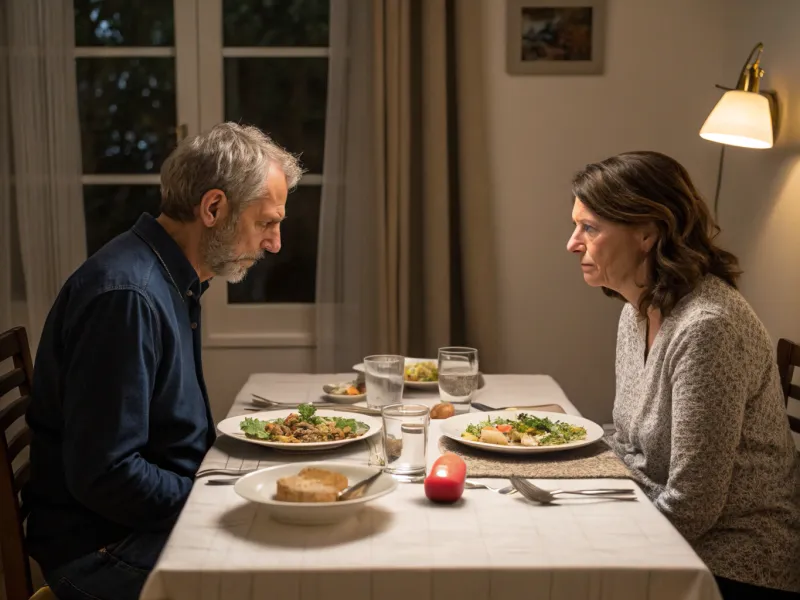
Communication is the lifeline of any relationship, yet here you are, struggling to even muster a simple exchange of words. Once, conversations flowed effortlessly, filled with shared dreams and laughter. Now, they feel more like a duty, performed out of obligation rather than genuine interest.
When every word feels burdened with the weight of what’s left unsaid, it becomes easy to retreat into silence. Silence, however, isn’t always golden. In your case, it might be the quiet acknowledgment that there’s nothing left to discuss.
If dialogues have turned into monologues, or worse, into voids of communication, it may indicate that the bridges connecting your lives have collapsed. The lack of meaningful conversation can be a heartbreaking sign that the emotional intimacy and understanding that once tied you together has unraveled.
3. One or both of you have stopped putting in effort—because it no longer seems worth it

Remember the days when both of you would go out of your way to bring a smile to each other’s faces? Those moments now seem like remnants of a distant past.
It’s not just about forgetting anniversaries or neglecting to call during the day. It’s about the absence of effort in nurturing the relationship, in trying to understand and support each other. When the spark of effort dims, it suggests a deeper, more troubling reality—that you no longer believe the relationship is worth the investment.
This lack of effort is a silent yet powerful acknowledgment that the love and connection that once fueled your commitment are fading away. When the actions that used to come naturally now require conscious deliberation, it might be a sign that the relationship has lost its vitality and purpose.
4. Resentment has replaced love, and forgiveness feels impossible

Resentment is a powerful emotion, one that can silently erode the foundations of a marriage without either partner realizing it. It’s the accumulation of past grievances, the unresolved conflicts that have festered over time.
The once tender feeling of love becomes overshadowed by the bitterness of resentment. Forgiving becomes an insurmountable hurdle, not because you don’t want to, but because the wounds run too deep.
If every interaction is tinged with resentment, where forgiveness feels like an act of betrayal to yourself, it’s a sign that the emotional chasm between you might be too wide to bridge. Resentment, when left unchecked, can consume the love that once was, leaving nothing but the ashes of what used to be a vibrant and loving connection.
5. You’ve both become more like roommates than romantic partners
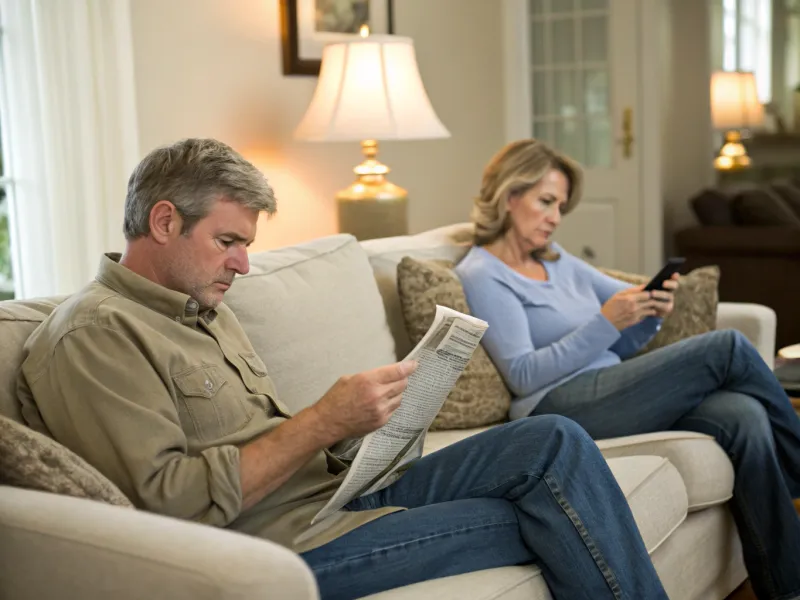
Living together does not automatically equate to sharing a life. There is a vast difference between being partners and merely cohabiting under the same roof.
When the relationship devolves into a pattern of routine and indifference, it suggests that the intimacy and passion have faded. You’re sharing a space but not a life.
The transition from partners to roommates often happens gradually, almost imperceptibly, until one day you realize that the person you used to share dreams with has become just another presence in the house. This transformation is a poignant reminder that the love and connection that once bound you have been replaced by mere convenience and habit.
6. The idea of staying together feels more like an obligation than a choice

Staying together for the sake of appearances, for the children, or because it’s what’s expected can slowly suffocate the soul. What was once a conscious choice born out of love becomes a burdensome obligation dictated by duty and societal expectations.
When the idea of leaving brings relief rather than fear, it’s a sign that the emotional ties have weakened to the point where obligation overshadows genuine affection.
This feeling of obligation rather than desire can indicate that the relationship has reached a point where the emotional connection is no longer viable. It’s a heavy realization, one that can weigh heavily on the heart, as you grapple with the dichotomy between what’s expected and what you truly feel.
7. You’ve lost yourself in the marriage, and you no longer recognize who you are

In trying to make a relationship work, it’s easy to lose sight of who you are as an individual. The lines between where you end and your partner begins can blur, leaving you feeling lost and disconnected from your own identity.
When your dreams, desires, and even personality become secondary to the marriage, it indicates that the relationship is overshadowing your true self. This loss of identity isn’t just a personal crisis; it’s a sign that the marriage is consuming rather than complementing you.
Rediscovering yourself can be difficult when the marriage feels like a maze with no exit. It’s a heartbreaking realization, but acknowledging it might be the first step towards reclaiming your individuality, whether within the marriage or outside of it.
8. One or both of you have emotionally checked out, and there’s no desire to reconnect

Emotional absence is often more telling than physical absence. You might still be physically present, sharing meals or sleeping in the same bed, but emotionally, you’re worlds apart.
When the emotional connection has deteriorated to the point where neither of you feels inclined to bridge the gap, it’s a sign that the heart of the relationship has stopped beating.
Emotional disconnection can be a silent enemy, one that creeps in unnoticed until the bond that once held you together is nothing more than a fragile thread. If neither party desires to rekindle the emotional intimacy, it may indicate that the relationship has reached a point beyond repair.
See also: 27 Divorce Conversation Starters For You And Your Spouse
9. Avoidance of intimacy and physical connection

Physical intimacy is a vital component of a healthy relationship, and its absence can be both a symptom and a cause of deeper issues.
When touch, once a natural and cherished expression of love, becomes something to avoid, it highlights a growing distance. This avoidance isn’t just about physical touch; it extends to all forms of intimacy, including emotional and intellectual.
The lack of intimacy creates a gap, one that can widen over time, leading to feelings of isolation and loneliness. If there’s a perpetual avoidance of connecting on an intimate level, it could signify that the relationship is struggling to survive.
10. Constant criticism and contempt

Criticism and contempt are destructive forces in any relationship. When every conversation seems to end in an argument, where words are wielded like weapons, it creates an environment of hostility and mistrust.
What was once a partnership becomes a battleground where neither side feels heard or respected. Criticism, especially when constant, erodes the foundation of love and trust.
Contempt is even more corrosive, as it signifies a deep-seated resentment and lack of respect for the other person. If criticism and contempt have become the norm, it might indicate that the relationship is in serious trouble, teetering on the edge of irreparable damage.
11. Feeling trapped with no way out
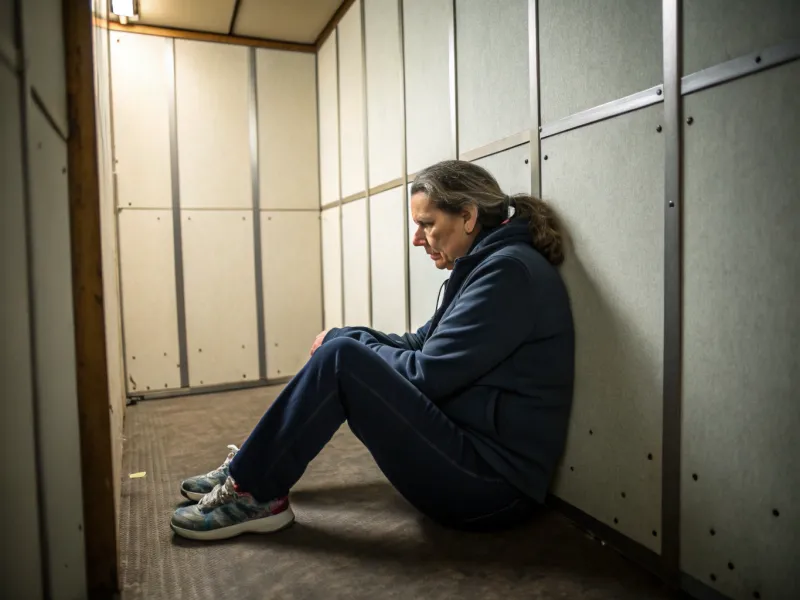
The feeling of being trapped in a marriage is both suffocating and isolating. It’s a sense of being stuck in a situation with no clear escape route, where every option seems to lead to more pain and confusion.
This feeling can stem from various factors—fear of being alone, financial dependency, or concern for children. Regardless of the cause, the result is a profound sense of helplessness.
Feeling trapped is a sign that the marriage no longer provides the safety and comfort it once did. It’s a heartbreaking realization, as you grapple with the internal conflict between wanting to break free and fearing the unknown path ahead.
12. Lack of shared goals or future plans
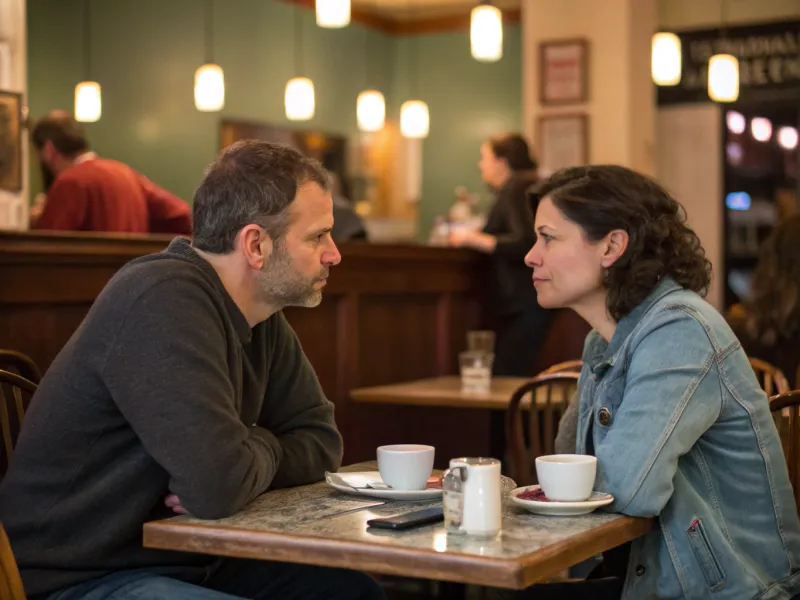
Having shared goals and future plans is what propels a relationship forward. It’s the excitement of building a life together, the anticipation of shared dreams realized.
When those plans dissipate, leaving behind only the mundane routines of everyday life, it signals a detachment of vision and purpose.
The absence of a shared future can make the present feel stagnant and directionless. It’s as if the compass that once guided your journey together has lost its needle. If there’s a persistent void where future plans once flourished, it might signify that the marriage is struggling to find its way.
13. Trust is shattered and cannot be rebuilt

Trust is the bedrock of any meaningful relationship. Without it, love becomes overshadowed by doubt and suspicion.
If trust has been shattered, whether through betrayal or deceit, and efforts to rebuild it have been unsuccessful, it leaves a relationship vulnerable to collapse.
The inability to trust creates a constant undercurrent of uncertainty, making it difficult to move forward. If trust cannot be restored, it might be a sign that the relationship has reached a point where healing is no longer possible.
14. You feel like you’re living a lie

Pretending that everything is fine when it’s not is exhausting. It’s the act of putting on a brave face and pretending for the sake of others, or even for yourself.
Living a lie creates a chasm between your public persona and your private despair. It can be a sign that the marriage is no longer a source of joy and authenticity but rather a facade that must be maintained.
When the effort to keep up appearances becomes overwhelming, it might indicate that the relationship is beyond repair, and that the truth, however painful, must be faced.
15. Indifference has replaced passion
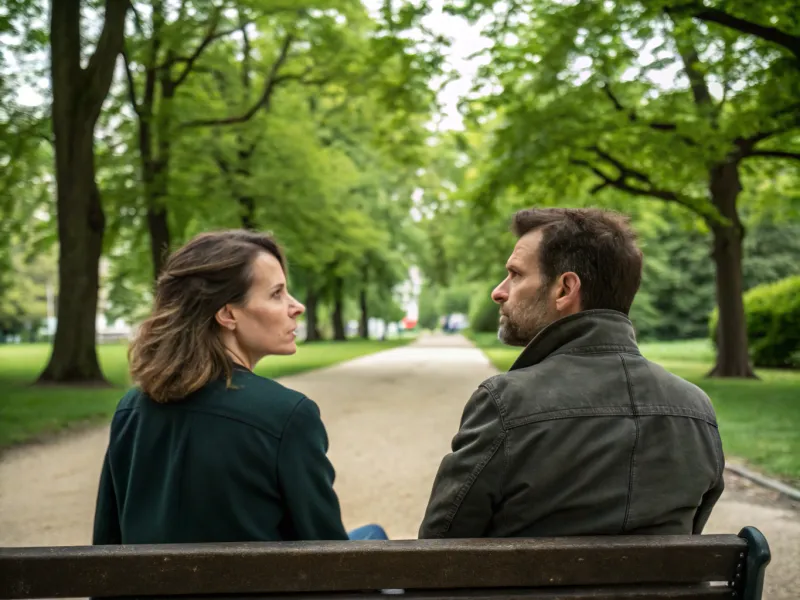
Passion is what fuels the connection between two people. It’s the fire that keeps the relationship vibrant and alive.
When passion wanes and is replaced by indifference, it signifies a deeper disconnection. Indifference is more than just a lack of interest; it’s the absence of care, where the emotional response is muted or nonexistent.
If passion has faded into indifference, and there’s no desire to reignite the flame, it may indicate that the relationship is struggling to survive.
16. You fantasize about a life without them

Fantasizing about a life without your partner is a sign that your subconscious is trying to tell you something. It’s not about harmless daydreams but rather a persistent longing for a different reality.
These fantasies can be an escape from the dissatisfaction and unhappiness that have settled into the marriage.
When the idea of life without them brings more joy and hope than the present reality, it might indicate that the relationship has reached a point where the possibility of happiness seems more attainable apart than together.
17. There’s a lingering sense of loneliness even when you’re together

Loneliness within a marriage is a unique kind of solitude. It’s the feeling of being alone, even when you’re physically with your partner. This loneliness stems from a lack of emotional connection and understanding.
It’s as if the bond that once tied you together has loosened, leaving you adrift in a sea of isolation.
If the presence of your partner fails to alleviate feelings of loneliness, it might indicate that the relationship is struggling to provide the companionship and support it once did.
18. You avoid spending time together

Spending time together is essential for maintaining a healthy relationship. It’s the shared moments that strengthen the bond and create lasting memories.
When you find yourself actively avoiding time together, it signals a deeper issue. This avoidance isn’t about needing space; it’s a reluctance to engage with the relationship itself.
If spending time together feels more like a chore than a pleasure, it might indicate that the relationship is struggling to survive.
19. Constant arguments with no resolution

Arguments are a natural part of any relationship, but when they become a constant feature with no resolution, it signals a deeper problem.
Constant arguing creates an environment of tension and hostility, where neither partner feels heard or understood.
If arguments are circular, always leading back to the same unresolved issues, it might indicate that the relationship is in a state of stagnation, unable to move forward or heal.
20. You no longer share laughter and joy

Laughter is a powerful connector, a sign of shared joy and happiness. When laughter disappears, replaced by silence or indifference, it indicates a loss of connection and companionship.
The absence of joy creates a void that can make the relationship feel lifeless and dull.
If you no longer find joy in each other’s company, it might be a sign that the relationship has lost its vitality and spark.
21. You feel emotionally drained rather than fulfilled

A healthy relationship should be a source of emotional nourishment and support. When it becomes an emotional drain instead, it signifies a deeper issue.
Feeling emotionally drained can stem from constant conflict, unmet needs, or a lack of emotional reciprocity. It’s as if the relationship is taking more than it’s giving.
If you find yourself feeling drained rather than fulfilled, it might indicate that the relationship is struggling to provide the support and nourishment it once did.
22. You’ve stopped caring about things that once mattered
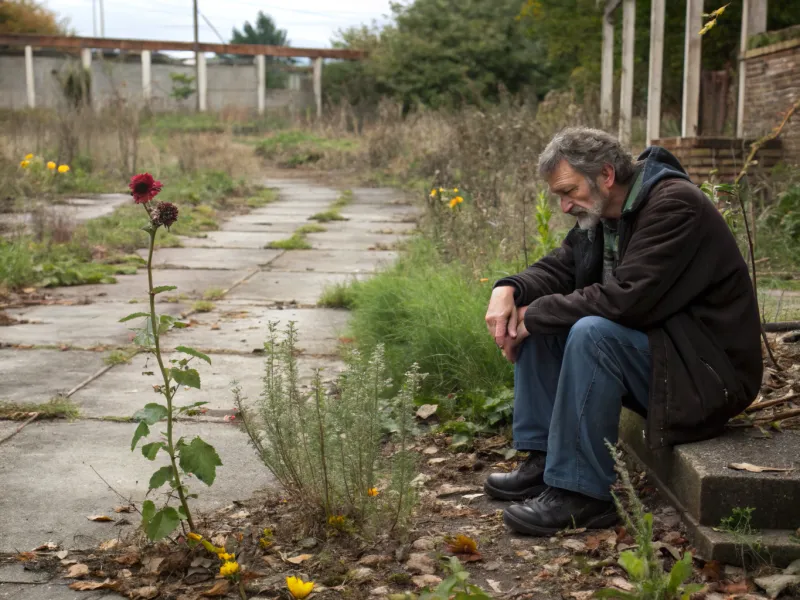
In a thriving relationship, partners care about each other’s interests and priorities. When this caring fades, it signals a deeper disconnection.
It’s the little things that once mattered—celebrating achievements, supporting dreams—that now seem insignificant.
If you’ve stopped caring about the things that once mattered, it might indicate that the relationship’s emotional core is eroding, leaving behind a shell of what once was.
23. The thought of intimacy feels burdensome

Intimacy should be a source of comfort and connection, not a burden. When the thought of intimacy feels overwhelming or unwanted, it highlights a growing distance.
This burden isn’t just physical; it extends to emotional and intellectual intimacy as well. It’s the feeling of not wanting to share or connect, as if the effort required is too great.
If the thought of intimacy feels more like a burden than a joy, it might indicate that the relationship is struggling to provide the connection and closeness it once did.
24. The relationship feels like a constant power struggle

A healthy relationship should be a partnership, not a battlefield. When it feels like a constant power struggle, it indicates a deeper imbalance.
This struggle isn’t just about control; it’s about dominance, where one partner feels the need to assert authority over the other.
If the relationship feels more like a competition than a collaboration, it might be a sign that the partnership has shifted from love to rivalry, creating a toxic environment.
25. You’ve stopped making plans together

Making plans together is a sign of a healthy future-focused relationship. When those plans disappear, it leaves a sense of stagnation and uncertainty.
The absence of planning doesn’t just indicate a lack of interest in shared activities; it highlights a deeper disconnection.
If you’ve stopped making plans together, whether for the weekend or the future, it might indicate that the relationship is struggling to find its direction and purpose.
26. The relationship feels more transactional than emotional

A relationship should be built on emotional connection, not transactions. When it starts to feel more like a series of exchanges, it indicates a shift from companionship to convenience.
This transactional nature can create a sense of detachment, where the relationship is reduced to what each person can get rather than what they can give.
If the relationship feels more transactional than emotional, it might be a sign that the emotional core has been lost, leaving behind a relationship of convenience rather than connection.
27. You’re constantly walking on eggshells

Walking on eggshells creates a constant undercurrent of tension and anxiety. It’s the feeling of having to carefully choose your words and actions to avoid conflict or upset.
This constant caution can create an environment of fear and inhibition, where authentic communication is stifled.
If you find yourself constantly walking on eggshells, it might indicate that the relationship is struggling to provide a safe and supportive environment.
28. There’s a lack of gratitude and appreciation

Gratitude and appreciation are essential for nurturing a healthy relationship. When these elements are absent, it creates a sense of neglect and undervaluation.
The lack of gratitude can foster resentment, as efforts go unrecognized and unappreciated. It’s as if the relationship has become a one-sided endeavor, where giving is met with indifference.
29. The relationship feels stagnant and unchanging

Stagnation in a relationship creates a sense of monotony and disinterest. It’s the feeling of being stuck in a cycle that never evolves or progresses.
This stagnation can lead to feelings of dissatisfaction and frustration, as the relationship fails to grow or adapt.
30. You avoid addressing the issues

Avoiding issues is a form of denial, a way of sidestepping the uncomfortable truths that need to be faced.
This avoidance creates a buildup of unresolved conflicts, where problems fester and grow rather than being addressed.
31. You no longer feel inspired or motivated

Inspiration and motivation are vital for personal and relational growth. When these elements disappear, it creates a sense of apathy and stagnation.
This lack of inspiration can affect not only the relationship but also individual aspirations and dreams. It’s as if the relationship has become a weight, holding you back rather than lifting you up.
If you no longer feel inspired or motivated, it might indicate that the relationship is struggling to provide the encouragement and support it once did.
32. There’s a constant fear of the relationship ending

Fear of the relationship ending creates a constant undercurrent of anxiety and insecurity. It’s the fear of losing something that was once valuable and cherished.
This fear can create a self-fulfilling prophecy, where anxiety and doubt contribute to the relationship’s decline.







